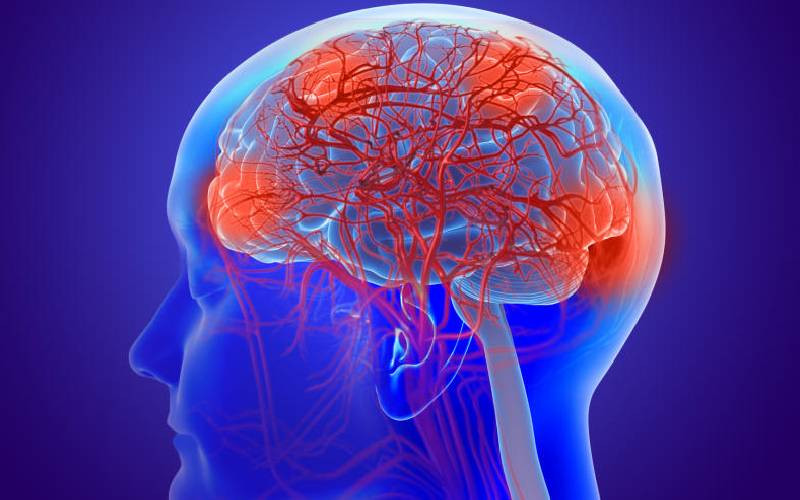New research finds early Alzheimer's may make some people more social

Have you ever wondered if early Alzheimer’s can make you more social? A new study involving 500,000 people has an answer.
Middle-aged people in the early stages of Alzheimer’s may actually become more sociable, not less, according to the research.
First and foremost, Alzheimer’s disease is a brain disorder that gradually destroys memory and thinking skills, and eventually affects the ability to carry out even simple tasks. In most people, symptoms appear later in life.
The research, which looked at data from nearly 500,000 British people over 40, found that those at higher genetic risk for Alzheimer’s were actually more likely to report active social lives, happier family relationships and less isolation.
“This was surprising to us,” an author Dr Scott Zimmerman, senior research fellow at Boston University said. “We expected to see more signs of people pulling away from social circles, perhaps because of difficulties planning activities or mood changes. But we found the opposite,” the researchers said.
The study, published in the American Journal of Epidemiology, concluded that people showing very early signs of Alzheimer’s, such as slight changes in thinking and memory, may actually become more sociable, drawing closer to family and friends for support in daily life.
Dementia has long been linked to social isolation and loneliness but it remains unclear whether loneliness increases the risk of Alzheimer’s or if social withdrawal happens because of the disease itself.
However, these findings suggest that adults at risk of Alzheimer’s may not withdraw years before diagnosis, infact, their social lives may even expand.
“Their social lives may even expand,” said co-senior author Dr Ashwin Kotwal, associate professor of medicine at UCSF. He explained that the study doesn’t contradict past research on Alzheimer’s and social disconnection, but adds a new layer to understanding that link
“This study suggests that the link between social isolation and dementia risk, seen in other research, isn’t just because early symptoms make people withdraw,” said co-lead author Dr Ruijia Chen, a postdoctoral researcher at Boston. “This strengthens the case that staying socially connected could truly help protect brain health.” The study found that adults in their 40s, 50s and 60s who were genetically at risk of dementia were more likely to have active social lives.Alongside genetics, many lifestyle factors can also affect whether someone develops dementia — including exercise habits, smoking, blood pressure, blood sugar levels, sleep, mental health, and medication use. These modifiable factors may account for around 30 per cent of Alzheimer’s disease and loneliness may be one of them.
“In a time when social engagement is decreasing, we hope that families, communities and policymakers consider how to create more opportunities for healthy social engagement across the life course,” stated co-lead author Dr Jacqueline Torres, associate professor of epidemiology and biostatistics.
It’s important to note that dementia is not a single disease but rather a syndrome characterised by a decline in cognitive abilities that affects daily functioning. Alzheimer’s disease is the most common type of dementia, accounting for about 60 per cent of cases, followed by vascular dementia.
In Kenya, there is a lack of data on the number of people with dementia but a study done by National Institutes of Health to community dwelling older adults aged 60 years and above revealed that a bigger number of these individuals are potentially living with dementia.
There are potentially 258,000 older adults living with dementia in Kenya, who likely have poorer outcomes. We need to encourage a timely diagnosis and develop better ways to support people living with dementia in Kenya and other resource-limited settings.
You may also like...
Diddy's Legal Troubles & Racketeering Trial

Music mogul Sean 'Diddy' Combs was acquitted of sex trafficking and racketeering charges but convicted on transportation...
Thomas Partey Faces Rape & Sexual Assault Charges

Former Arsenal midfielder Thomas Partey has been formally charged with multiple counts of rape and sexual assault by UK ...
Nigeria Universities Changes Admission Policies

JAMB has clarified its admission policies, rectifying a student's status, reiterating the necessity of its Central Admis...
Ghana's Economic Reforms & Gold Sector Initiatives

Ghana is undertaking a comprehensive economic overhaul with President John Dramani Mahama's 24-Hour Economy and Accelera...
WAFCON 2024 African Women's Football Tournament

The 2024 Women's Africa Cup of Nations opened with thrilling matches, seeing Nigeria's Super Falcons secure a dominant 3...
Emergence & Dynamics of Nigeria's ADC Coalition

A new opposition coalition, led by the African Democratic Congress (ADC), is emerging to challenge President Bola Ahmed ...
Demise of Olubadan of Ibadanland
Oba Owolabi Olakulehin, the 43rd Olubadan of Ibadanland, has died at 90, concluding a life of distinguished service in t...
Death of Nigerian Goalkeeping Legend Peter Rufai

Nigerian football mourns the death of legendary Super Eagles goalkeeper Peter Rufai, who passed away at 61. Known as 'Do...

![Acrylic Artificial Nails Market Size, Share | Trends [2025-2032]](https://www.fortunebusinessinsights.com/img/twitter-logo.png)
:max_bytes(150000):strip_icc():focal(745x341:747x343)/deborah-roberts-1-070325-a967062bd74048459f459baa493df7ed.jpg)

